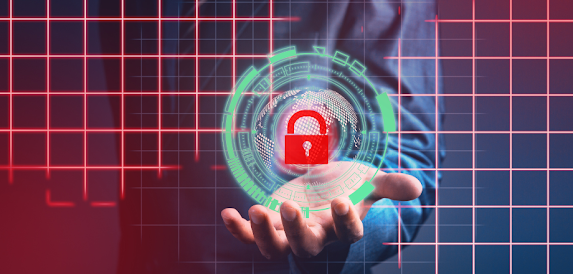Why Cybersecurity Is a Top Priority for Modern Technology Companies
The Evolving Threat Landscape
Increasing Sophistication of Cyber Attacks
Cyber Attacks have substantially, over time, become more sophisticated and tougher to come upon. Advanced Persistent Threats (APTs), ransomware, and zero-day exploits are examples of present-day cyber assaults that might cause large harm to organizations. These assaults are often executed with the aid of substantially expert and nicely funded adversaries, together with geographical regions, prepared crime agencies, and hacktivists. The growing sophistication of these attacks necessitates equally superior and proactive cyber security measures to shield against them.
Proliferation of IoT Devices
The speedy adoption of IoT gadgets has delivered a multitude of the latest vulnerabilities. These gadgets, ranging from smart home devices to business manipulation systems, often have vulnerable safety controls and are frequently targeted by cybercriminals. A compromised IoT tool can serve as a gateway for attackers to infiltrate large networks, making it important for generation groups to implement robust safety protocols for IoT deployments.
Cloud Computing and Remote Work
The shift to cloud computing and the upward push of far-off work have multiplied the attack surface for cyber threats. Cloud environments, even though they impart scalability and flexibility, also present precise protection challenges. Misconfigured cloud settings, insecure APIs, and a shortage of visibility into cloud workloads can cause record breaches and different security incidents. Additionally, remote painting has blurred the conventional network perimeter, requiring agencies to adopt new safety paradigms inclusive of zero-believe structures to shield their property.
Financial and Reputational Risks
Direct Financial Losses
Cyber assaults can result in full-size financial losses for technology companies. Ransomware assaults, for example, can lead to big ransom payments, downtime, and recuperation prices. Data breaches can also incur hefty fines, felony prices, and reimbursement charges for affected clients. The economic impact of cyber security may be crippling, specifically for smaller businesses with restricted sources.
Reputational Damage
A company's popularity is one of its most precious properties, and a cyber attack can critically tarnish it. Customers, companions, and investors lose trust in an organisation that has suffered a factual breach or other protection incident. This lack of agreement can cause patron attrition, decreased income, and a decline in inventory fees. Rebuilding a broken reputation is an extended and exhausting method, making it imperative for agencies to prioritise cyber security to guard their logo photographs.
Operational Disruptions
Cybersecurity can disrupt enterprise operations, leading to a lack of productivity and sales. For instance, a Distributed Denial of Service (DDoS) assault can render online services unavailable, causing inconvenience to clients and interrupting crucial business procedures. Such disruptions will have cascading effects, affecting supply chains, customer support, and typical commercial enterprise continuity.
Regulatory Pressures and Compliance
Data Protection Regulations
Governments and regulatory bodies worldwide have added stringent data protection policies to shield private and sensitive records. The General Data Protection Regulation (GDPR) in Europe, the California Consumer Privacy Act (CCPA) within the United States, and different comparable regulations mandate businesses to put into effect robust safety features to guard information. Non-compliance with those policies can result in severe consequences and legal movements, compelling generational businesses to prioritize cyber security.
Industry-Specific Standards
Certain industries, in conjunction with finance, healthcare, and crucial infrastructure, are issues for organization-particular cyber security standards and rules. For example, the Payment Card Industry Data Security Standard (PCI DSS) requires agencies that deal with credit card records to place particular security controls into effect. Similarly, the Health Insurance Portability and Accountability Act (HIPAA) mandates stringent records safety measures for healthcare corporations. Adherence to the necessities is important for fending off regulatory scrutiny and preserving industry certifications.
Legal Liability
Technology companies can face criminal legal responsibility for failing to defend touchy data. In the event of a factual breach, affected individuals and groups might also report proceedings in search of damages for the loss of records or privacy violations. Legal battles may be prolonged and steeply-priced, further emphasizing the need for sturdy cybersecurity practices to mitigate prison risks.
Strategic Advantages of Robust Cybersecurity
Competitive Differentiation
In a crowded market, strong cybersecurity practices can serve as a key differentiator for generations of agencies. Customers are becoming more aware of cybersecurity risks and prefer to do business with companies that show a commitment to protecting their records. By showcasing their cybersecurity abilities, companies can take advantage of an aggressive facet and entice protection-conscious customers.
Innovation Enablement
Robust cybersecurity practices can serve as an enabler of innovation. When protection is integrated into the development lifecycle, corporations can innovate with self-assurance, knowing that their new services and products are built on a stable foundation. This proactive technique for safety can accelerate time-to-market for improvements and decrease the danger of safety-related setbacks.
Risk Management and Resilience
Effective cybersecurity is a crucial difficulty for danger management and agency resilience. By figuring out and mitigating cyber risks, organizations can lessen the possibility and impact of protection incidents. This resilience guarantees that companies can continue to operate successfully even in the face of cyber threats, minimizing disruptions and retaining company continuity.
Conclusion
Cybersecurity is a top priority for current-era businesses because of the evolving hazard panorama, financial and reputational dangers, regulatory pressures, and strategic blessings it gives. As cyber threats turn out to be more sophisticated and pervasive, companies should adopt a proactive and comprehensive approach to cybersecurity. By imposing sturdy security features, investing in technology Company in Perth, and fostering a subculture of security focus, technology companies in Perth can defend their assets, preserve client acceptance as true, and power innovation. In an interconnected world, cybersecurity is not just a necessity but a fundamental enabler of business fulfilment and technological development.

.jpg)
Comments
Post a Comment